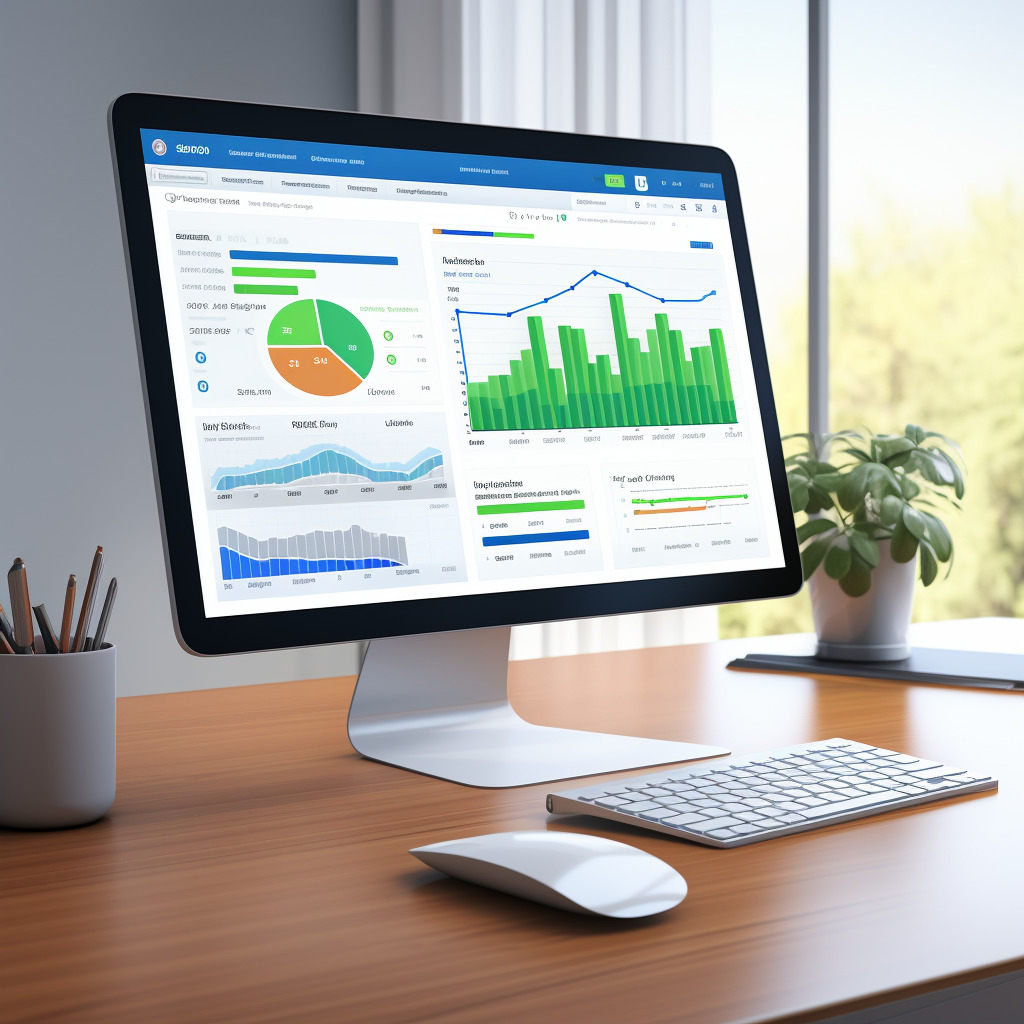Your website is the gateway to your online presence. It’s your virtual storefront, the first point of contact for potential customers, and a vital platform for building your brand and business. But, as with any aspect of business, the online world is constantly changing, and what works today might not be as effective tomorrow. This is where the power of website analytics comes into play.
Website analytics provide you with a wealth of data and insights into how your website is performing. From visitor demographics to page views and click-through rates, these metrics are invaluable in helping you understand how users are interacting with your site.
The Foundation: Understanding Website Analytics
Let’s establish a foundational understanding of what website analytics often encompass. For a more detailed discussing of the components that make up a great website, check out our Helix Insider Podcast episode on Designing the Perfect Website: User Experience and Beyond.

Website analytics refer to the collection, measurement, analysis, and reporting of data related to your website’s overall performance and user behavior. This data can include, but is not limited to:
Visitor Demographics: Information about your website visitors, such as their location, age, gender, and device type that they are viewing your website on.
Traffic Sources: How visitors found your website, whether through search engines, social media, direct links, or other channels.
User Behavior: Actions taken on your website, including page views, clicks, form submissions, and purchases.
Conversion Rates: The percentage of visitors who take a desired action, such as making a purchase or signing up for a newsletter.
Bounce Rates: The percentage of visitors who navigate away from your site after viewing only one page.
The Tools of Website Analytics
To gather and analyze this data, various analytics tools are available, with Google Analytics being one of the most popular. These tools provide user-friendly dashboards and reports that present your website’s performance metrics in a comprehensible manner.
Still not sure how to analyze metrics efficiency so you can determine what changes need to be made to optimize your site? Let us help. Here at Triple Helix Corporation, we are experts in website design and development.
When analyzing website performance, you have several key areas you will want to measure. A successful website is one that not only attracts visitors, but also keeps them engaged by offering exciting content. By regularly monitoring your website analytics, you’ll be able to gain insights into how users are interacting with your website.
This will allow you to enhance their experience, based on what’s currently resonating with them. You can create more content that your audience is likely to engage with, and minimize content that’s distracting or not creating a buzz.
You’ll also want to regularly check in on your bounce rates. A high bounce rate can be a sign visitors are not finding what they’re looking for. Your website should quickly make apparent what products and/or services you offer, and what value you can provide to your intended customer. Analytics can help you pinpoint any specific pages contributing to high bounce rates, allowing you to make necessary improvements in a timely manner.
Another critical element when analyzing website performance is checking how your site is performing on mobile devices. With the rise of mobile browsing, it’s crucial to ensure your website is mobile-friendly. Analytics can show you the devices your visitors use most often, helping you tailor your site to their unique preferences.
Using Metrics To Boost Your SEO Performance
Search Engine Optimization (SEO) is the cornerstone of online visibility. Regularly checking website analytics is instrumental in boosting your SEO efforts.
Analytics can reveal which keywords drive the most traffic to your site. Armed with this information, you can optimize your content to rank higher for these particular keywords – leaving out any that haven’t made a significant impact.
You can also analyze referral traffic to help identify which websites are linking to yours. This information is valuable for building backlinks over time and enhancing your site’s authority.
By keeping up-to-date on metrics, you are able to gain better visibility into your website’s search engine rankings over time. If you notice a decline, you can take proactive measures to regain your position in search results.

Clicks are great but ultimately, you want to see conversions. Whether it’s making a purchase, signing up for a newsletter, or simply filling out a contact form, website analytics play a pivotal role in CRO.
By examining user flow data in analytics, you can pinpoint where exactly visitors are dropping off before completing a desired action. This allows you to optimize these critical conversion points.
Website analytics also enable efficient A/B testing, where you can experiment using different versions of a webpage to see which one performs better in terms of conversions.
Most website analytics tools will also allow you to establish conversion goals in order to track specific actions users take on your website. Regularly review this data to see if your goals are being met.
Using Analytics To Craft Targeted Marketing Campaigns
Website analytics provide valuable data for tailoring your marketing efforts to reach your target audience effectively. For starters, you are able to accurately identify distinct user segments based on demographics, behavior, or location.
This segmentation can prove critical in your efforts to create targeted marketing campaigns. You can also gain deeper insight into what types of content resonates with different user segments – allowing you to better personalize your content for maximum impact.
Your social media analytics, in most cases, can also be integrated with your website analytics in order to gain a better “big-picture view” on how social media platforms are playing a role in driving traffic and conversions. Adjust your social strategy accordingly.
Return on Investment (ROI) Measurement
Your website is a significant investment, and you need to know if it’s delivering a return. Website analytics can help you efficiently measure the ROI of your online presence.
Analyzing the cost associated with each conversion you are bringing in can help you properly optimize your marketing budget. You can also connect e-commerce data with your analytics tool in order to track the actual revenue being generated through your website. This helpful data can aid you in evaluating the financial impact of your online presence.

Ultimately, the goal of your website is to convert visitors into customers. By utilizing analytics, you are able to gain visibility into critical insights needed in order to achieve this objective.
If your website is currently generating leads, analytics can help you track the source of these leads and optimize lead generation strategies accordingly. For e-commerce websites, shopping cart abandonment is a common challenge. Analytics can reveal why users abandon their carts, allowing you to implement strategies to recover these potential sales.
Analytics can also help you determine the Customer Lifetime Value (CLV) of your customers. This information can guide your marketing efforts and customer retention strategies.
In today’s digital era, your online presence is a critical component of your business success. Website analytics provide the data-driven insights you need to make informed decisions, optimize your website, and transform clicks into customers.
By regularly checking in on your website’s performance, you can fine-tune your user experience, boost SEO, and refine your marketing strategies. The result? A stronger online presence, higher conversions, and a competitive edge in the digital marketplace.
Remember, your website is not a static entity. It’s a dynamic tool that can evolve and grow with the help of data-driven insights.
Looking to improve your existing website or build a new site? Let us be your trusted partner. Here at Triple Helix Corporation, we have extensive experience in website development. We’d love to help you optimize your website efforts in order to achieve your business goals.


